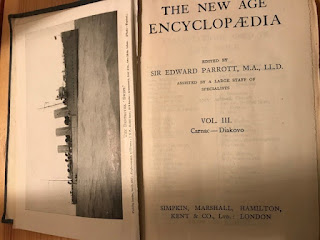Here are many voices.
Each one silent
though full of words,
waiting to be woken.
I recognise these names
and titles.
Many are friends from
long ago, beside
the newly arrived and
unacquainted –
quite a few I’ll never
know.
Nothing so patient as
the unread book
ready to unlock its
store of story –
eager description,
gentle reflection,
anger, sadness, earnest
instruction.
Some urging laughter.
Others just trying
to make you cry –
sealed up and silent
as I draw near I hear
in my head
this voice of mine
talking in various accents.
My index finger
touching the bindings
can open up, unlock,
unmute – set free
stories and thoughts
packed tidy and tight
waiting like goods in a
hold.
There they remain,
heavily freighted
with authorial intention,
their burdens
of words bound up and
silent, unless another
with finger and voice
releases those words
giving them sound.
Until then, inside their covers
they wait, weighted
with so much to say.
Isn’t it hard to get rid
of books – old friends, reminding you of where you were, what you enjoyed, who
you were with and, well, who you were – perhaps even are now?
Text books are a bit easier, containing stuff that’s no longer useful – probably out of date now, but they too represent part of one’s past, one’s old identity – each being companions in their own way, with whom you sweated and teared, if not bled. So, several of mine have survived – no longer read or even opened, but still there on the shelves, destined to share my own oblivion when it arrives.
So eloquent are books, we think, that a visit – or a zoom, when perhaps the stage has been set quite self-consciously – to someone’s work area has us craning to read the titles…
But there’s more to this story than all this, since many books have come down to us – inherited, like genes. And we for our part will pass them on to our children.
Just look at these Beatrix Potters for example.
Some were given to me when
I was little, some are even older; I read them to our children, and grandchildren. They will go on. And probably, on and on.
And my Observer books,
which I collected, or was given, or (I confess) pinched from brothers. Several are
duplicated, as you can see; it’s not a proper collection at all, but I can’t
help feeling warmly towards those little 5/- books.
As for my father’s Encyclopedia…
How well my brothers and I
recall the titles of the ten volumes, starting with A – Banjo and ending
with Tanks – Zymotic Diseases, via Freebench – Hythe (nor am I too
sure of the significance of either of those).
Passed to me, never used
to find information but occasionally dipped into like a family photo album, to
react sometimes with amusement, other times with a shudder at the imperial militarism
– can I, should I, discard them? And how,
as for certain my friend the bookdealer won’t give me anything but a wry smile?
So there they all are,
and remain for the time being – that run of Dorothy Dunnetts which came from my
wife’s mother, my grandfather’s Modern Pig-Sticking by Major Wardrop, my own Hilary
Mantels, perhaps destined themselves eventually to become Dunnetts – enough for
now, all those books, all those voices…






Thank you Richard. So much to agree with there and so beautifully said. I love the photos. And please may I borrow Modern Pig-Sticking?
ReplyDeleteBeautiful, I truly enjoyed this one. I too can't make myself get rid of my father's old books, although some are in Hungarian which I don't quite understand. They feel far too precious because of who owned them before me!
ReplyDelete